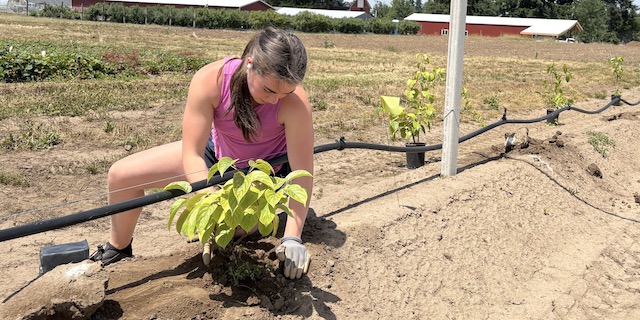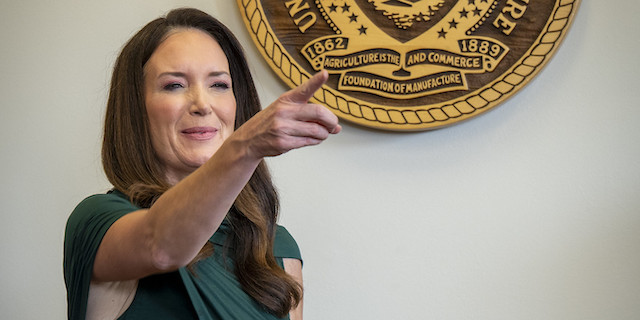Commentary: The long, positive relationship between U.S. wheat farmers and Japan
Published 11:39 am Tuesday, August 4, 2020

- Vince Peterson
I can say with certainty, there is no food industry relationship in the world that goes back farther than the relationship between U.S. wheat producers and the Japanese flour milling industry.
It was in the late 1940s that U.S. wheat producers first sat down with Japanese flour millers and set the bedrock foundation of a commercial friendship that has continually grown for more than 70 years.
Together we have faced and conquered many obstacles — and we’ve always come out closer and stronger than we began.
In more recent years, we’ve faced the collective challenge of working through four separate, rogue GM wheat plant discoveries in fields and places where simply none should have any cause to exist.
Our close cooperation kept the supply channels open during the time it took to reach a resolution, limiting harm to Japan’s millers and bakers and U.S. farmers.
Then came the trade agenda and the gyrations that consumed several years of our collective time.
When the United States pulled out of the Trans-Pacific Partnership (TPP), the U.S. wheat industry found itself at a distinct effective tariff disadvantage to both Australia and Canada. Both sides again worked together where possible and independently to protect the wheat food industries while a bilateral U.S.-Japan trade agreement was negotiated.
Our Chairman Darren Padget and I were invited to witness the White House signing ceremony for that agreement, which I consider a huge compliment to all the work and effort that we all put into helping shape and implement this crucial trade deal.
Not long after that, the world was hit with an event that not one of us has ever seen or dealt with in our lifetimes — COVID-19.
We take our promise and commitment to provide a consistent and reliable supply of wheat to Japan and beyond as our most important obligation. And, while the past five months have turned our business, economic and personal worlds completely upside down, we have learned a great deal about ourselves and our resilience as people and an industry.
We have learned we all have immense capacity and untapped creativity helping us work through this pandemic and continue supplying critical food resources for our people and the world.
The U.S. food industry was declared an essential business right from the beginning and every effort was undertaken from the farm, through the grain handling and marketing system and to federal grain inspection and phytosanitary certification to ensure that every vessel to Japan and every other destination was loaded on time.
The very few bumps in that road were quickly dealt with and the export cadence never suffered.
The approximately 100 million bushels of U.S. wheat that Japan imports every year represents about 10% of our entire annual wheat export volume. That is a source of pride and motivation for our industry because Japan represents arguably the most diverse, sophisticated milling and baking industries in the world.
The pandemic has forced a change in the way we communicate and work with our good friends and customers in Japan. We very much regret that we have not been able to reliably board an airplane and travel across the Pacific to be able sit across the table from one another as business partners should do.
We cannot do that today, but we give you our commitment to provide the information you, and all our importing partners around the world, need to thrive.
For now, we must wait patiently for the world’s research community to develop a vaccine for this virus so that we can eventually return to something more normal. But — as we have done for more than 70 years — we will continue engaging our best creative thoughts and finding ways to work together to keep the wheat supply chain fully intact and provide the food that our consumers depend upon.






